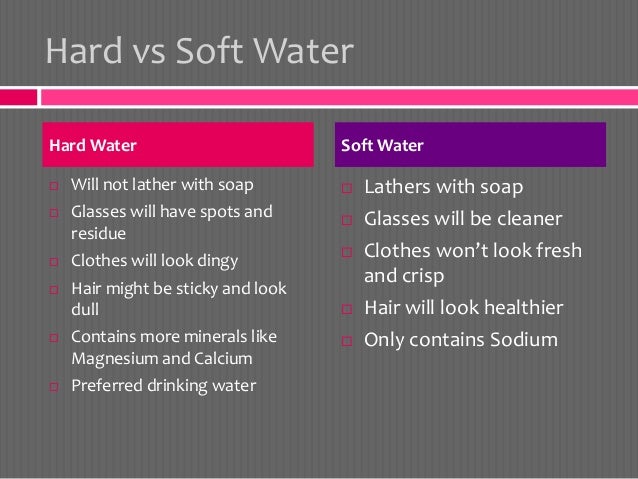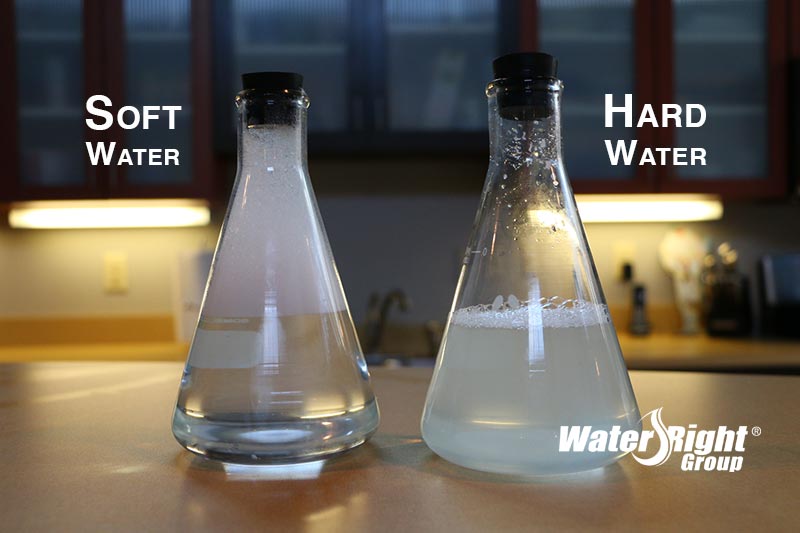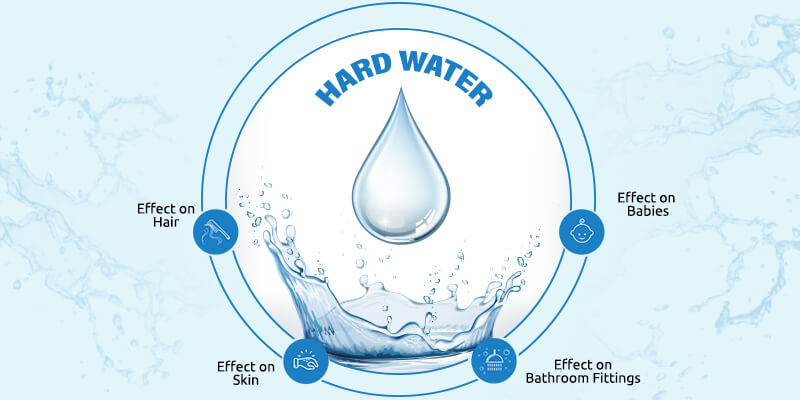Hard Water Vs Soft Water Hair. If you have hard water, you can use a water softener to soften it. Hard water can coat the hair with mineral build-up, and soft water is trickier to wash with and thus can leave product build-up behind.

For some, the Soft Water could be too much or become a bit of a "too good to be true" situation.
If you use hard/soft water on your hair a lot, it prevents copper or iron buildup from discoloring your hair.
The minerals in hard water deposit on the hair shaft, often causing colored hair to turn a brassy tone. And to answer my question above…yes it does matter! Although, it's definitely not as damaging as hard water, soft water can make thin hair tend to look a little greasy or even make your special volume shampoo, not so special. Hard water characteristically has high levels of calcium and magnesium which can really have negative impacts on your hair - leaving your hair feeling dull and lifeless. Treat Your Family to Softer Skin and Hair. Different hair types react differently to the two types of water.
If so, use a shampoo for soft water, which can counteract many problems. Hard water can be softened by being flushed through a salt solution that exchanges the calcium and magnesium ions for salt ions. On the topic of hard water vs. soft water for hair, the latter comes out on top by a long shot. If you have hard water, you can use a water softener to soften it. Soft water hair is shiny and smooth because it takes in more moisture and stays healthy longer in dry weather. In other words, it is more gentle on your body and your home.
To return hard water to its soft state, water softening systems are employed to reduce the concentrations of minerals, leaving only sodium ions and water soft. Truths and Common Myths about Soft and Hard Water. This makes things like washing dishes, cleaning your shower head, and washing clothes a lot easier as soft water doesn't leave soap scum or mineral stains.




